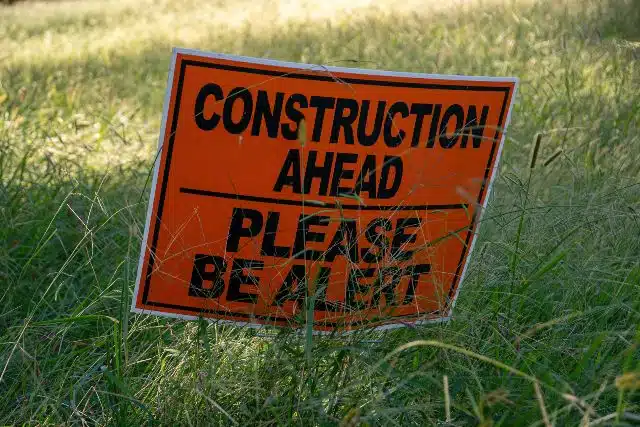
How to File Workers’ Compensation Claim in Vermont






Your Guide to Claiming Workers’ Compensation
Workers’ compensation in Vermont provides medical and wage benefits to employees who suffer job-related injuries or illnesses. This includes both sudden injuries from accidents and health conditions that develop over time due to work conditions.
The system operates regardless of who caused the injury, offering support without the need to prove fault. To receive these benefits, workers must report their injury and file a claim following specific steps and deadlines set by the state.
Understanding the steps to file a workers’ compensation claim in Vermont matters because it affects your ability to receive the care and compensation you need after an injury. If deadlines are missed or paperwork is incorrect, your claim could be denied or delayed. This leaves you without crucial financial or medical support.
At Sabbeth Law, located in Vermont, we help injured workers navigate this process from start to finish. Our team can handle everything from the initial injury report to any appeals that may be needed.

Step 1: Reporting Your Injury
Reporting your workplace injury in Vermont as soon as possible is critical. Prompt action protects your rights and enhances the strength of your claim. Even if the injury seems minor, reporting it immediately is recommended, as some injuries can grow more serious over time.
Why Timely Reporting Matters
- Establishes a Record: Your quick report creates an official timeline of when and how your injury occurred.
- Preserves Evidence: Reporting it right away ensures that physical evidence and witness statements are documented before memories fade.
- Meets Legal Deadlines: Vermont law has strict limits on how long you have to report an injury. The Vermont Statutes Annotated, specifically, 21 V.S.A. § 656, provides that a claim must be made within six (6) months from the injury. Missing these deadlines could cost you your benefits.
- Shows Commitment: Swift reporting signals that you take your injury and the claims process seriously.
How to Report Your Injury
- Notify Your Employer Immediately: Tell your supervisor or employer about the injury as soon as possible. Remember that the law states that notice to the employer must be given “as soon as practicable”, meaning as soon as you are able. Provide details of how and when it happened.
- Provide Written Notice: Follow up with a written statement, noting the date, time, location, and nature of your injury, along with any witnesses.
- Seek Medical Attention: Even if the injury appears minor, visit a healthcare professional right away and keep copies of any records or notes.
- Follow Workplace Procedures: Some employers have specific procedures for reporting injuries. Make sure you’re aware of and follow these guidelines.
- Keep All Records: Maintain copies of all forms and communications about your injury. These documents may be invaluable if any disputes arise.
It is always recommended that you report right away to avoid any confusion or missed deadlines. If you need assistance with reporting your injury to your employer, a skilled workers’ comp lawyer from Sabbeth Law can help.
Contact UsStep 2: Documenting Your Injury
Proper documentation is vital for a strong workers’ compensation claim. It is crucial to capture all the relevant evidence, particularly if your case becomes complicated. Gathering thorough records substantiates your claim, clarifies the extent of your injuries, and demonstrates their direct link to your work.
Medical Records
Seek immediate medical care, even if your injury seems minor. Keep copies of every document, including:
- Doctor’s notes, treatment plans, and prescriptions
- Emergency room or urgent care reports
- Physical therapy and rehabilitation documents
- Medical imaging results (X-rays, MRIs, CT scans)
- Mental health evaluations, when applicable
Incident Reports
Depending on where you were hurt, you may have a workplace incident report. If you were operating a vehicle when you were injured, you should have a police report.
Photographic Evidence
- Photograph your injuries at multiple stages, especially if they evolve over time.
- Take pictures of the accident scene, any equipment or tool involved, and other relevant details.
Witness Statements
If coworkers or bystanders saw what happened, it would help to collect statements or gather their contact information. Witnesses can confirm your version of events and bolster your claim.
Personal Documentation
It is encouraged that you maintain a personal journal documenting your daily pain levels, challenges, missed workdays, and any other ways the injury affects you. These personal accounts can be invaluable when negotiating with insurers or presenting your case.

Step 3: Filing the Claim
Filing a workers’ compensation claim in Vermont may feel daunting, especially when you’re already dealing with an injury. At Sabbeth Law, we do everything possible to streamline the process and guide you through each step. Here’s how claims are typically filed:
- Report Your Injury Right Away: This kickstarts the entire process.
- Seek Medical Attention: Inform your healthcare provider that your injury occurred at work.
- Obtain the Necessary Forms: Your employer should provide a Form 1 (Employee’s Claim and Employer’s First Report of Injury). If they don’t, you can download it from the Vermont Department of Labor’s website.
- Fill Out Form 1 Completely: Provide accurate and thorough answers.
- Submit the Form to Your Employer: They must file it with their insurance carrier and the Vermont Department of Labor within 72 hours.
- Follow Up: Confirm with your employer that the form has been properly filed. If not, you have the right to file it directly with the Department of Labor.
Once you’ve filed your claim, keep copies of every document and piece of correspondence.
Eligibility Criteria for Workers’ Compensation
Most employees in Vermont are covered by workers’ compensation. However, specific criteria determine eligibility. At Sabbeth Law, we help you evaluate your situation so you know immediately whether you can expect coverage. Here are the basic eligibility requirements:
- Employee Status: You should be considered an employee, not an independent contractor.
- Employer Coverage: Nearly all Vermont employers must carry workers’ comp insurance or be self-insured. If your employer lacks coverage, you can explore other options for pursuing compensation.
- Work-Related Injury: You must show that your injury occurred in the course of your employment. This includes injuries sustained on the job site or while working on an assigned task.
- Timely Reporting: Vermont law requires you to inform your employer within six months, though immediate reporting is strongly recommended.
- Timely Filing: You must file a formal claim within six months of the incident. Again, filing as soon as possible is best for preserving evidence and meeting legal deadlines.
Note that certain classifications of workers, such as some agricultural employees or casual employees, may have different rules or be exempt.
Contact UsUnderstanding Deadlines
In workers’ compensation claims, one pattern remains constant: deadlines make or break a case. Missing a reporting or filing deadline risks losing your right to compensation. Below are some of Vermont’s key deadlines to remember:
- Reporting the Injury: You must notify your employer as soon as possible, ideally within 72 hours for workplace injuries.
- Filing the Claim: You generally have six (6) months from the date of injury to formally file your claim with the Vermont Department of Labor.
- Filing a Personal Injury Lawsuit (if applicable): In many non-workplace injury cases, Vermont’s statute of limitations is three years, but that can vary. This usually doesn’t apply to standard workers’ compensation claims, yet we mention it for completeness.
- Appealing a Denial: If your claim is denied, you typically have 30 days to file an appeal.
What to Expect After Filing Your Claim
You may wonder what happens next once you’ve filed your workers’ compensation claim. Here’s a quick overview of what you can expect:
Initial Review by the Insurance Company
- An adjuster reviews your claim and medical documents.
- They may contact you or your employer for more information.
Medical Evaluations and Approved Treatment
- An insurer’s independent medical examination (IME) may be required.
- You maintain the right to receive recommended treatments from trusted healthcare providers.
Receiving Benefit Determinations
- Approval: If approved, you begin receiving wage replacement and medical coverage. We’ll verify that the insurance company is providing the correct amount.
- Partial Approval: Sometimes, they may approve only part of your claim. We’ll fight for complete coverage of all your injuries.
- Denial: If your claim is denied, we prepare an appeal and present a strong case for why you deserve benefits.
Ongoing Case Management
- We keep close track of your medical progress.
- We handle negotiations with the insurance company for any settlement discussions.
- We prepare for possible hearings if you must challenge a denial or insufficient coverage.
The US Department of Labor’s Office of Workers’ Compensation Programs also provides information and updates to guide workers in different sectors and fields.

Contact Information for the Vermont Department of Labor
We believe in giving you the tools and resources to learn more about your options. The Vermont Department of Labor provides official information on workers’ compensation, including forms, instructions, and updates on any changes in state law. Here’s how you can reach them:
- Website: https://labor.vermont.gov/contact
- Phone: (802) 828-2286
- Email: labor.wccomp@vermont.gov
- In-Person Visits: Check their website for office locations and hours if you prefer a face-to-face consultation.
The Department of Labor can answer general inquiries and provide additional guidance. However, they do not offer legal advice or representation. For personalized support, especially if your case is complex or you’re facing disputes, contact a Vermont workers compensation attorney.
Contact UsNext Steps in Your Workers’ Compensation Journey
Moving forward after a workplace injury can be challenging. It helps to have a clear plan and a legal team you can count on. At Sabbeth Law, we believe that prompt action is one of the most powerful tools you have to protect your rights. As soon as you’re injured, we can begin setting up your claim, gathering evidence, and taking every necessary measure to secure the benefits you deserve.
We know you’re under a great deal of stress. Our mission is to handle the legal complexities so you can focus on healing. When you’re ready to move forward, contact us at Sabbeth Law. We’ll stand by you to help ensure your workers’ compensation claim is filed properly, your rights are upheld, and your voice is heard. Don’t let uncertainty stop you from getting the support you need.
Practice Areas
Client Testimonials
LUKE PARMENTER“Immediately after my son’s injury at work, he was treated poorly. Over the course of the next few days it became even worse, so I called Mike and he and Crystal have been absolute lifesavers during the process. Mike is not your typical stuffed suit lawyer who only cares about the bottom line he genuinely cares about his clients and his assistant Crystal is beyond amazing! My thanks to you both!”
Client Testimonials
“Immediately after my son’s injury at work, he was treated poorly. Over the course of the next few days it became even worse, so I called Mike and he and Crystal have been absolute lifesavers during the process. Mike is not your typical stuffed suit lawyer who only cares about the bottom line he genuinely cares about his clients and his assistant Crystal is beyond amazing! My thanks to you both!”
LUKE PARMENTER
“I could never ask for a better attorney, to fight for me, to believe in me, and have faith in me, than what I found in Mike Sabbeth, He doesn’t treat you like a client, he treats you as if you are one of his own family members, He will fight for you, with all he has, and is ALWAYS up front and honest with you about everything!”
SANDRA DRUGE
